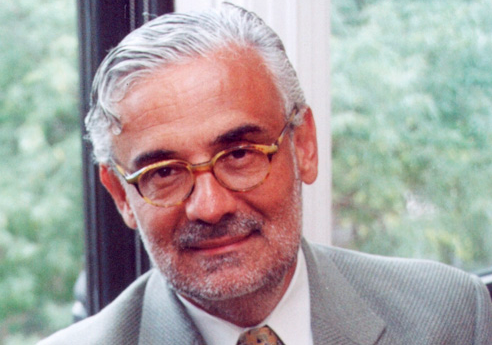
Internationally acclaimed social scientist Marcelo Suarez-Orozco will discuss the effects of immigration on the education of children and teenagers at a lecture Feb. 6 at UNL.
The lecture, which runs from 1:30 to 3 p.m. in the Nebraska Union Auditorium, is titled "Rethinking Immigration and Education in the Age of Global Vertigo." The lecture is free and open to the public.
Suarez-Orozco is the Courtney Sale Ross University Professor of Globalization and Education Co-Director of Immigration Studies at New York University.
A leading scholar on the social and cultural effects of immigration on both documented and immigrants, Suarez-Orozco looks at the short-term and long-term health and educational impact of the act of immigration on various groups, particularly students, said Mary Willis, associate professor of anthropology at UNL. Suarez-Orozco led a recent five-year study of a group of students from six different countries. The award-winning book reporting the results of this landmark study, "Learning a New Land: Immigrant Students in American Society," was published by Harvard University Press in 2008.
Among the study's findings was that students who have a formal mentor have much better success in school, and Willis said she has found that to be true. For eight years, she has taught a class called "Cross-Cultural Mentoring" in which UNL students have been paired with immigrant students at Lincoln North Star and Lincoln high schools. The results are mostly positive, with many of the immigrant students earning high school diplomas and either pursuing more education and or working.
"Our educational system was not designed to accommodate such diversity," Willis said. "English Language Learning teachers help teach language, a tough challenge all around, but that language acquisition is only the beginning of what immigrant kids need for success. They need a broader context to understand the culture of success, someone to help them navigate, interpret and explain the system. Mentors help these students with intensive, individualized and focused assistance. They do not make up for the fact (immigrant) students have disadvantages, but they certainly are helpful."
The UNL mentors also have benefited, she said, because they learn much about their own culture, they learn to be resourceful. They learn about racism and the idea of cultural bereavement -- the idea of grieving for a culture you have lost. And they learn skills that will benefit them as future parents.
"I think they also see that immigrants and refugees come to this country with skills that may not be used or seen as useful in our culture but are in fact important," she said.
Willis said Suarez-Orozco is the type of social scientist who has put his research into action.
"He has a wonderful mix of theory and immediate applicability," she said.
In addition to his public lecture, Suarez-Orozco will meet with students in a psychology of immigration class and a faculty group in the College of Education and Human Sciences. On Feb. 7, he will meet with invited teachers and administrators from Lincoln Public Schools, the Lincoln mayor's multicultural advisory group and the New Americans Task Force.
Professor Suarez-Orozco's research is regularly featured in global media including the New York Times, Wall Street Journal, Washington Post, Time, Newsweek, U.S News and World Report, Huffington Post, the Economist, NPR, CNN, MSNBC, and in leading European, Middle Eastern, and Latin American outlets. An Argentinian by birth, he earned bachelor's, master's and doctoral degrees from the University of California, Berkeley.
Suarez-Orozco's visit to UNL is sponsored by Center for Civic Engagement, Vice Chancellor for Student Affairs, College of Arts and Sciences, College of Education and Human Sciences, Compact Service Corps AmeriCorps Program, Colorado Campus Compact, Department of Teaching, Learning, and Teacher Education, Department of Psychology, Faculty Senate Convocations Committee, Department of Anthropology and UNL Research Council.
— Kim Hachiya, University Communications